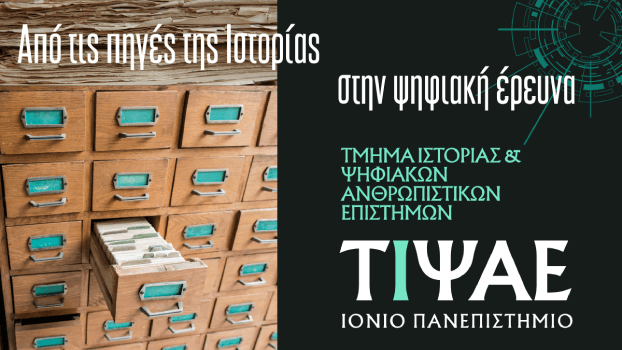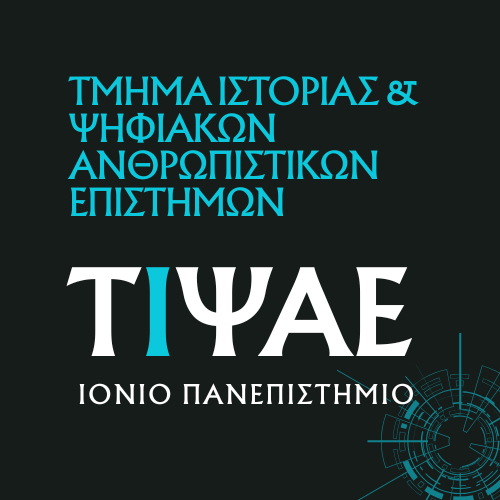Beginning in the academic year 2025–2026, the Department of History within the Faculty of Humanities at the Ionian University will be renamed to the "Department of History and Digital Humanities". The department’s curriculum will be expanded to include a new digital dimension, aimed at addressing contemporary academic needs and strengthening the digital skills of its graduates, without altering the Department’s core academic discipline.
The decision to enrich the curriculum is driven by developments in the field of History within the digital environment (such as digital history, social networks and history, digital games, artificial intelligence in historical research, etc.), as well as parallel advancements in other branches of the Humanities, including Digital Archaeology, Philology, Linguistics, Philosophy, Anthropology, Education, and more.
The pioneering and innovative nature of the new curriculum integrates the analysis and interpretation of historical phenomena from antiquity to the modern era, the development of critical thinking and an interdisciplinary approach to the past, with meaningful engagement in the Digital Humanities. The restructured curriculum leads to a degree in History and Digital Humanities and offers a wide range of courses:
· Core courses in History and other disciplines within the Humanities.
· Introductory courses in Digital Humanities and Computer Science.
· Elective and seminar courses in specialized fields, enabling students to deepen their interdisciplinary understanding of history while acquiring training in digital tools applicable to both History and the Humanities. This alllows students to tailor a personalized programme of study aligned with their interests.
· The opportunity to select courses from the Department of Informatics and the Department of Audio and Visual Arts at the Ionian University further enriches the curriculum with specialized subjects focused on digital skills and the dynamics of research, communication and teaching in the digital era (indicative courses include: Website Development, Graphic Arts, Online Communication, Film, Multimedia and Gamification, Digital Composition of Virtual Environments, and others).
The intended outcomes of the department’s renaming are multifaceted. They include familiarizing students with historical research and interpretation, cultivating skills for creating digital knowledge in the Humanities, promoting interdisciplinary approaches to the past, applying digital methods in research and education, and preparing graduates for emerging fields of employment and entrepreneurship.




